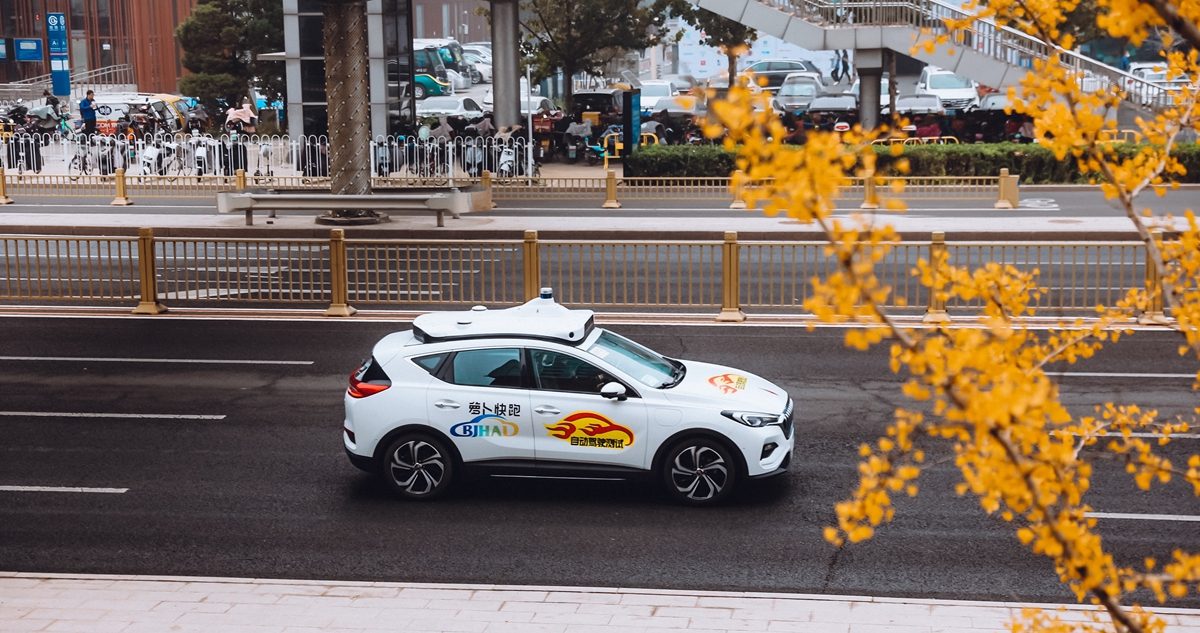

China launched its first fully automated driving services in November 2021. So it comes as no surprise that the Yongchuan district in Chongqing has already become a regional powerhouse for autonomous driving in western China in western China.
Chinese autonomous robotaxis have received approval for the commercial use of 14 autonomous driving taxis in the Western China Autonomous Driving Open Test Base of 85 square kilometers and 220 kilometers of roadways. Autonomous driving at Level 4 implies that the white Baidu Apollo Robotaxis can operate independently in most conditions without the assistance of a human driver.
Like self-driving cars in science fiction movies, the experience of Robotaxis runs smoothly with no shaking or sudden braking. All day long, passengers can use smartphone apps like Apollo Go, Baidu Maps, and Yongchuan Public Service to hail and pay for trips, Apollo Run’s chief of operations in Chongqing said.
The robotaxis covers more than 70 pick-up and drop-off locations, including scenic spots, schools, shopping malls, residential areas and industrial parks. The speed limit for this vehicle is 60 km/h. The robotaxi service in Yongchuan, China, will include a human operator in the driver’s seat to ensure passenger safety, but it is scheduled to be fully operational this year.
Earlier this year, on April 28, 2022, Beijing granted autonomous driving permits to two robotaxi operators-Baidu Inc and Pony.ai, wherein the robotaxis were allowed to operate without safety drivers on the busy roads of the capital!
At Baidu, a 60-square-mile area in Yizhuang, a southern suburb of Beijing, was recently completed as a driverless operation, according to Ruan Tingchuan, the company’s head of operations. Baidu’s Apollo Park’s operations manager, Chen Hongxiao, hailed the move as a watershed moment. He said the country’s autonomous driving industry had entered a new commercialization phase, having completed technical verification and product development.
He added that Baidu Apollo also launched Chinese autonomous robotaxis that offer ride-sharing services in Wuhan of Hubei on June 30, following Beijing, Chongqing, and Shanxi’s Yangquan. The self-driving car service provided 196,000 trips in the first three months.
A major industrial hub and gateway to Southwest China, Chongqing is home to one of the largest IT clusters in the world, as well as a significant auto manufacturing base. A smart industrial hub and a world-renowned smart city are among the goals of the city’s authorities.
By the end of the 14th 5-year plan (2021-25), Deng Wen, executive deputy head of Yongchuan district administration, says the district aims to construct a national-level autonomous driving test and demonstration base in Chongqing’s Yongchuan district.
For the first time in Western China, open testing and demonstration of autonomous driving are taking place at the base, which opened in 2019. At the Chongqing Cloud Valley Yongchuan Big Data Industrial Park, three buses outfitted with Level-4 autopilot technologies began service on November 28, 2021, marking the start of China’s first commercially operated autonomous bus route.
The robobus, built by Baidu and bus maker King Long, measures 5.9 meters in length and has a top speed of 40 kilometers per hour. It can carry a total of 12 passengers. According to Baidu’s claims, there are 240 meters of distance between the bus and any obstructions it can see. Eight bus stations are located throughout the 10-kilometer route. The cost is the same as a standard bus ride in China: two yuan for e-tickets, facial recognition, or smart/transit cards.
Chinese autonomous robotaxis are expected to consolidate in the next years as technology improves. IHS Markit estimates that China’s autonomous car service market will grow to more than 1.3 trillion yuan by 2020, with Baidu accounting for 40% of the market share.
Tech titans from China and the United States have boosted investments in the burgeoning sector because they believe it will be the next big thing in the new intelligent era. For the first time, Baidu has made a public offering of self-driving car services since it began investing in the technology in 2013.

